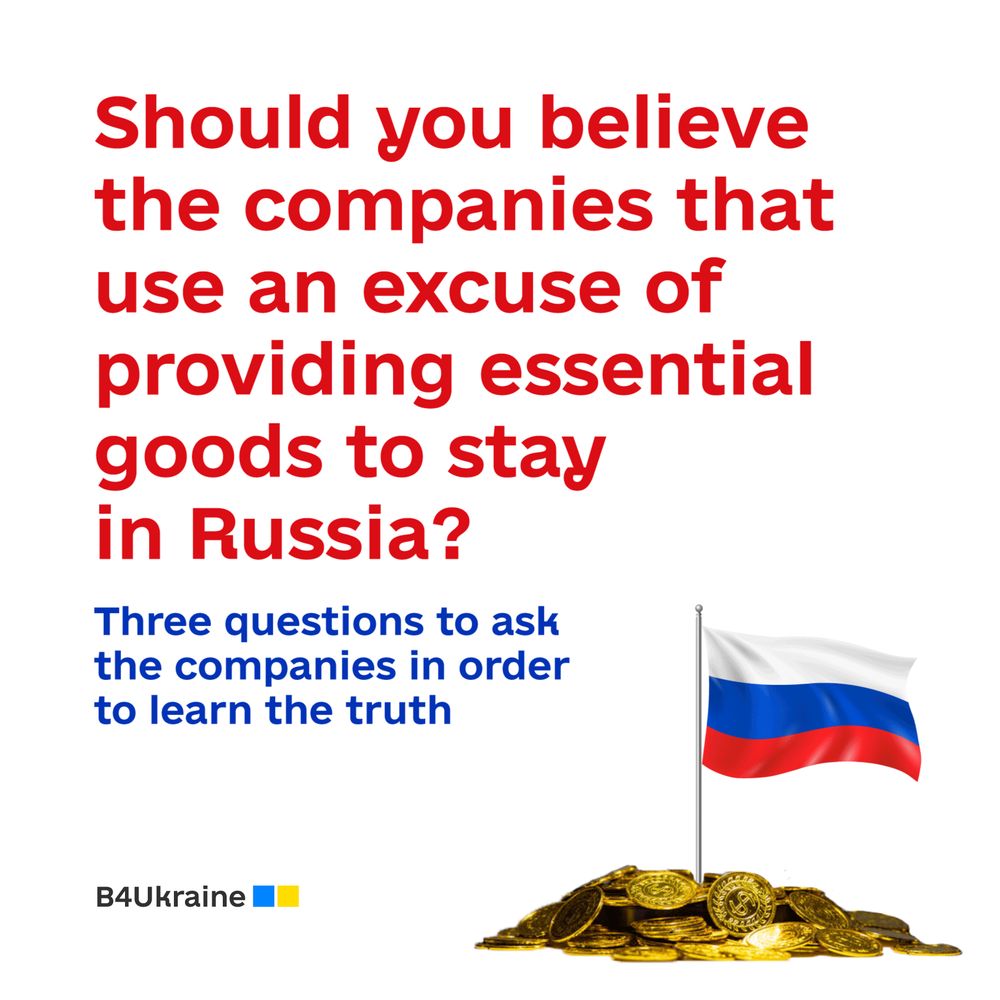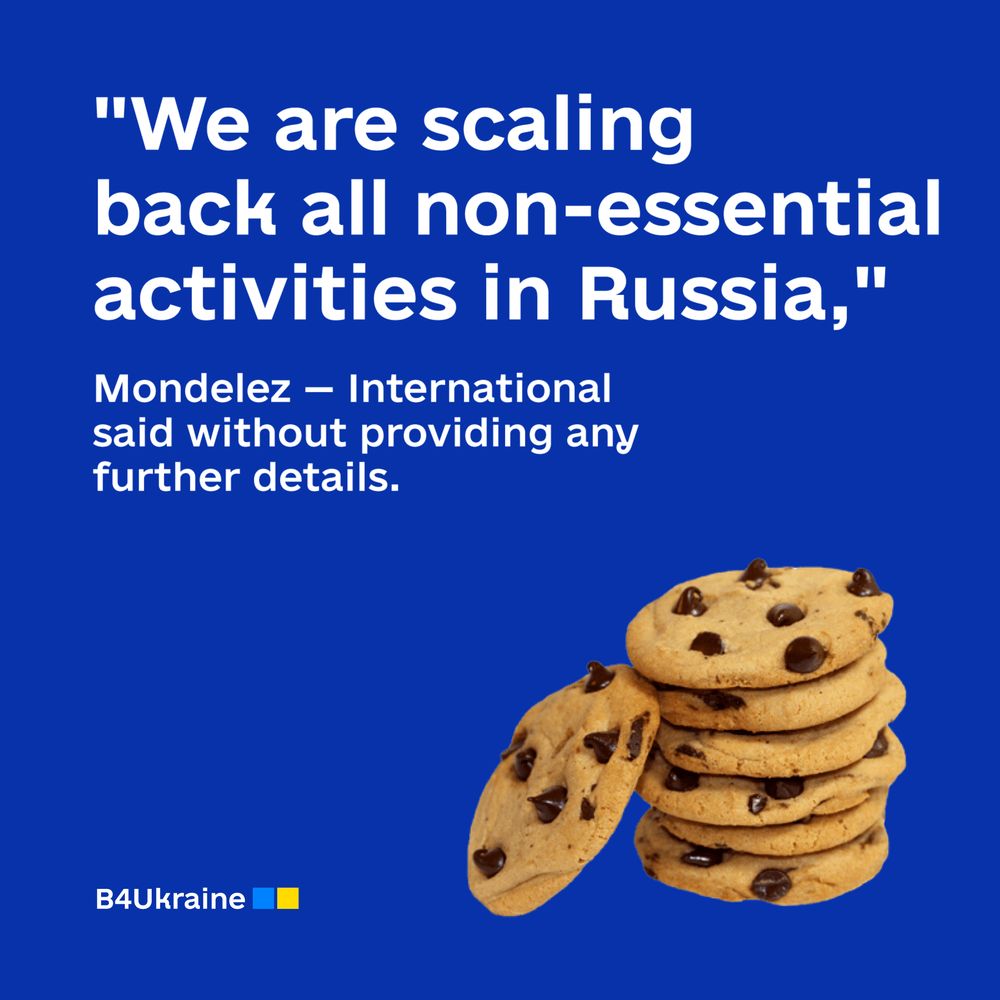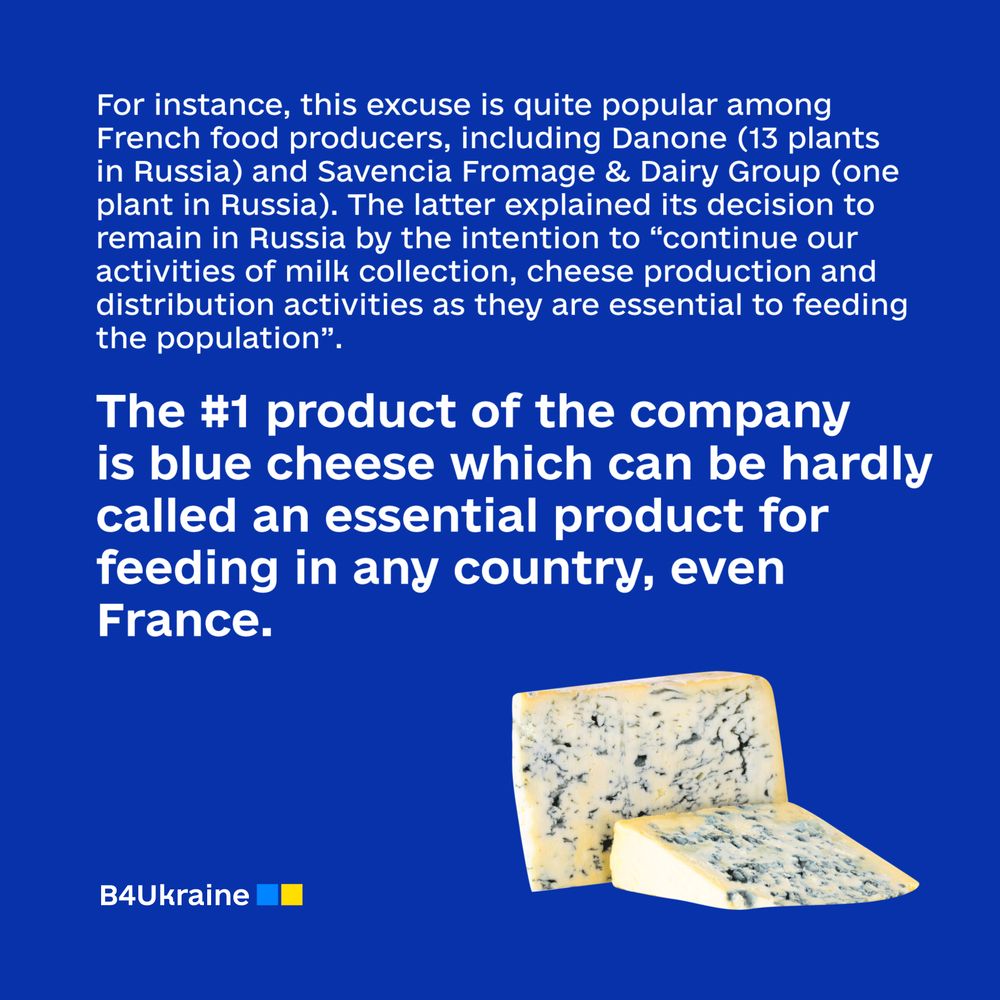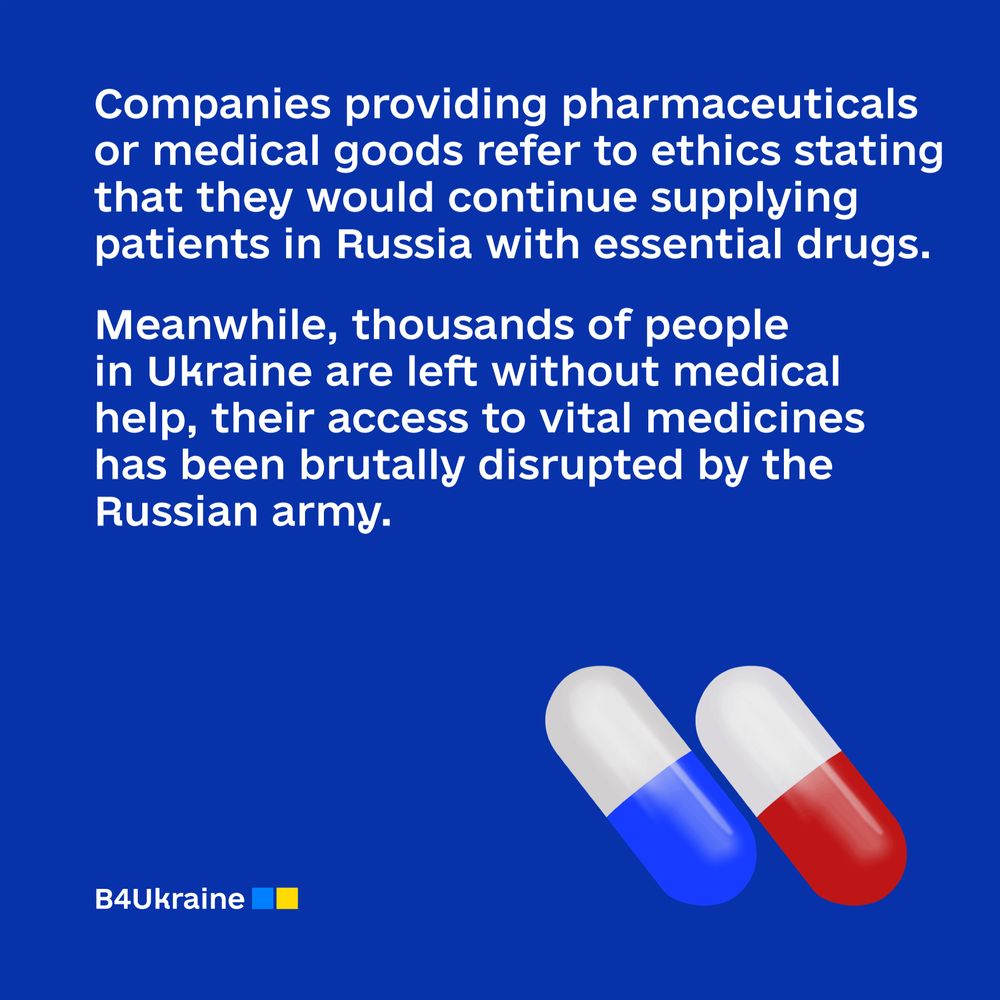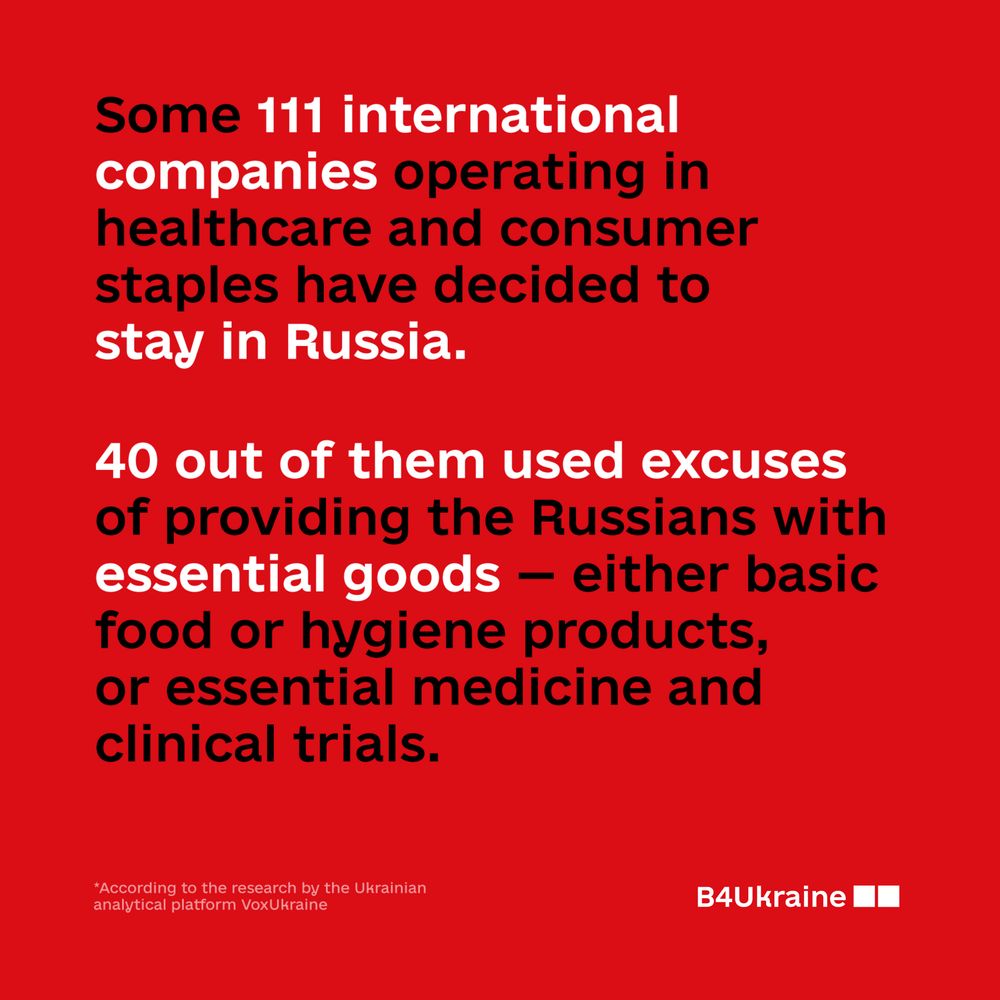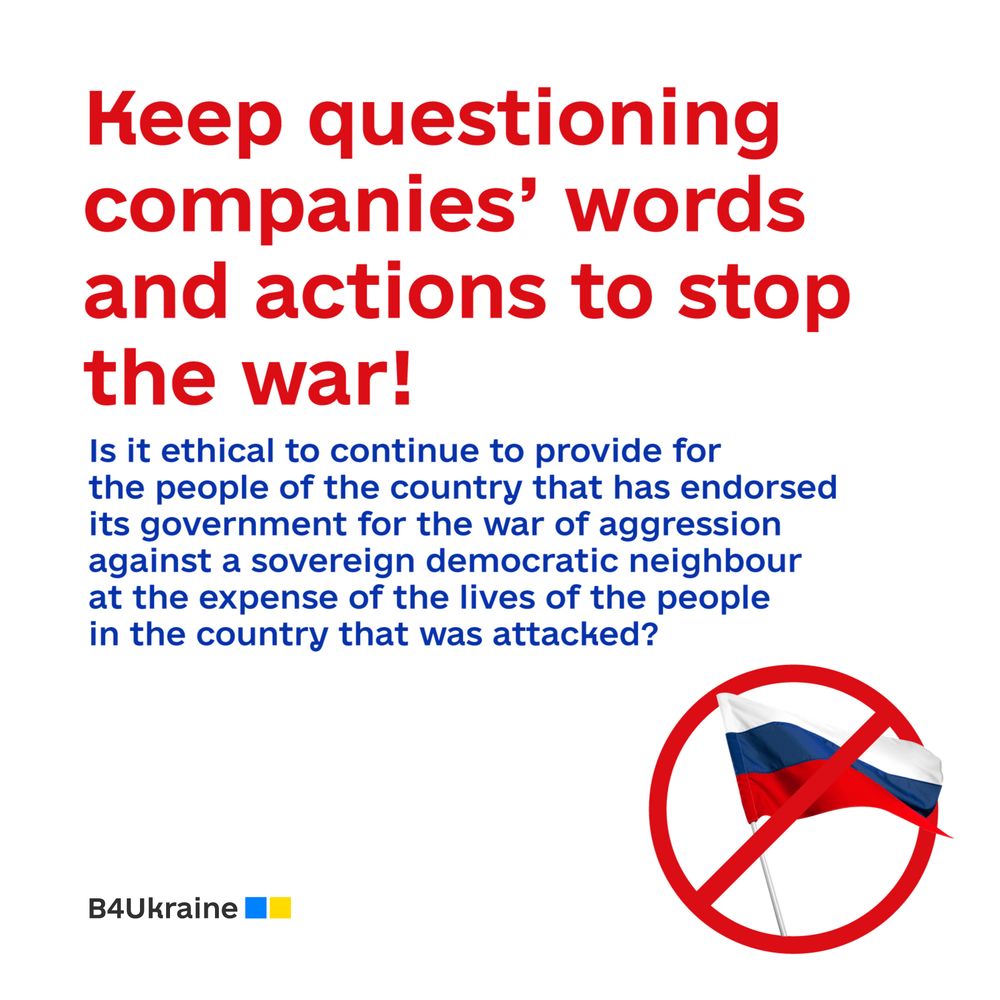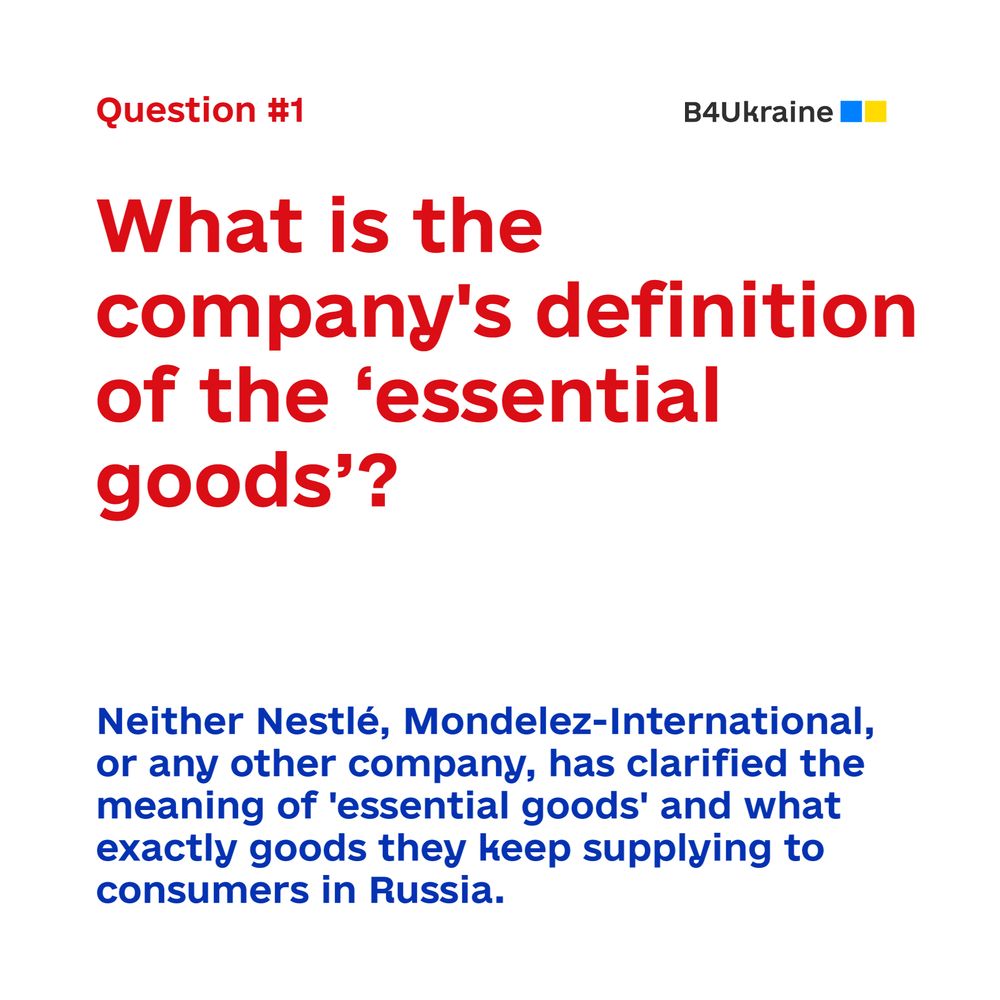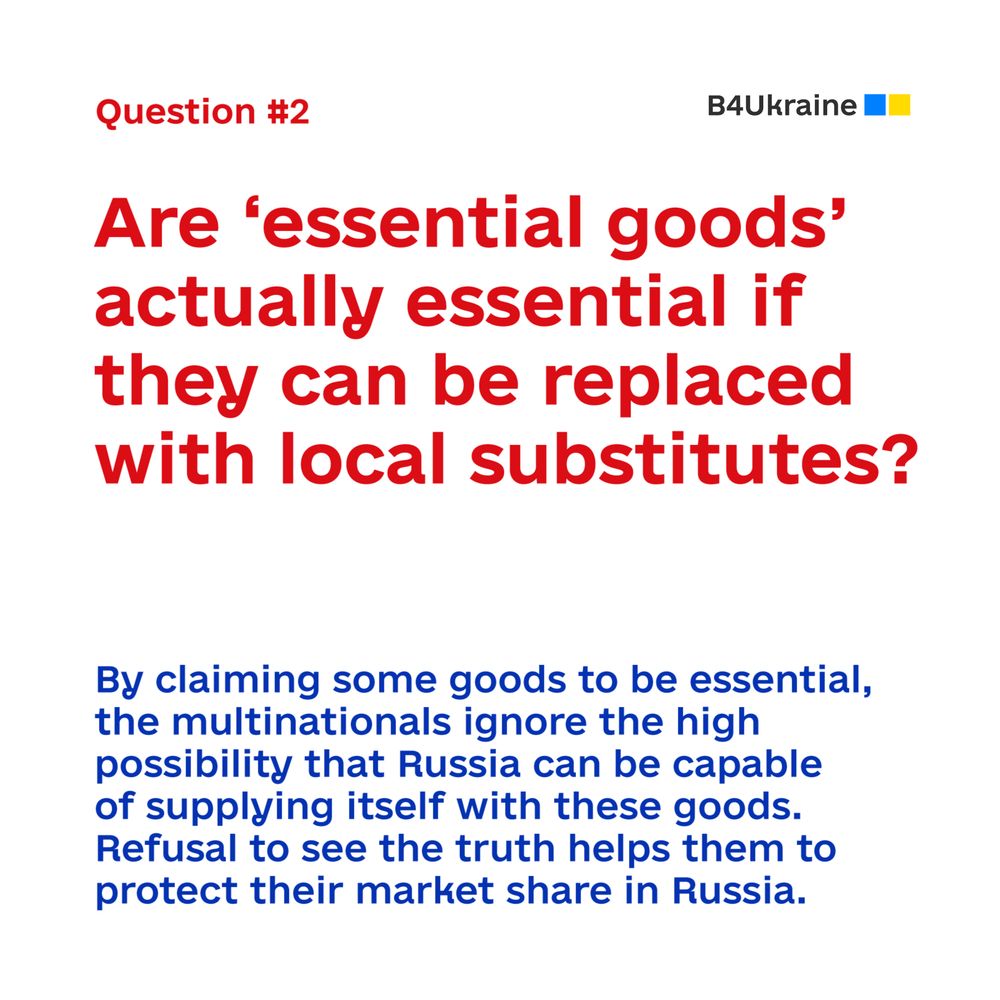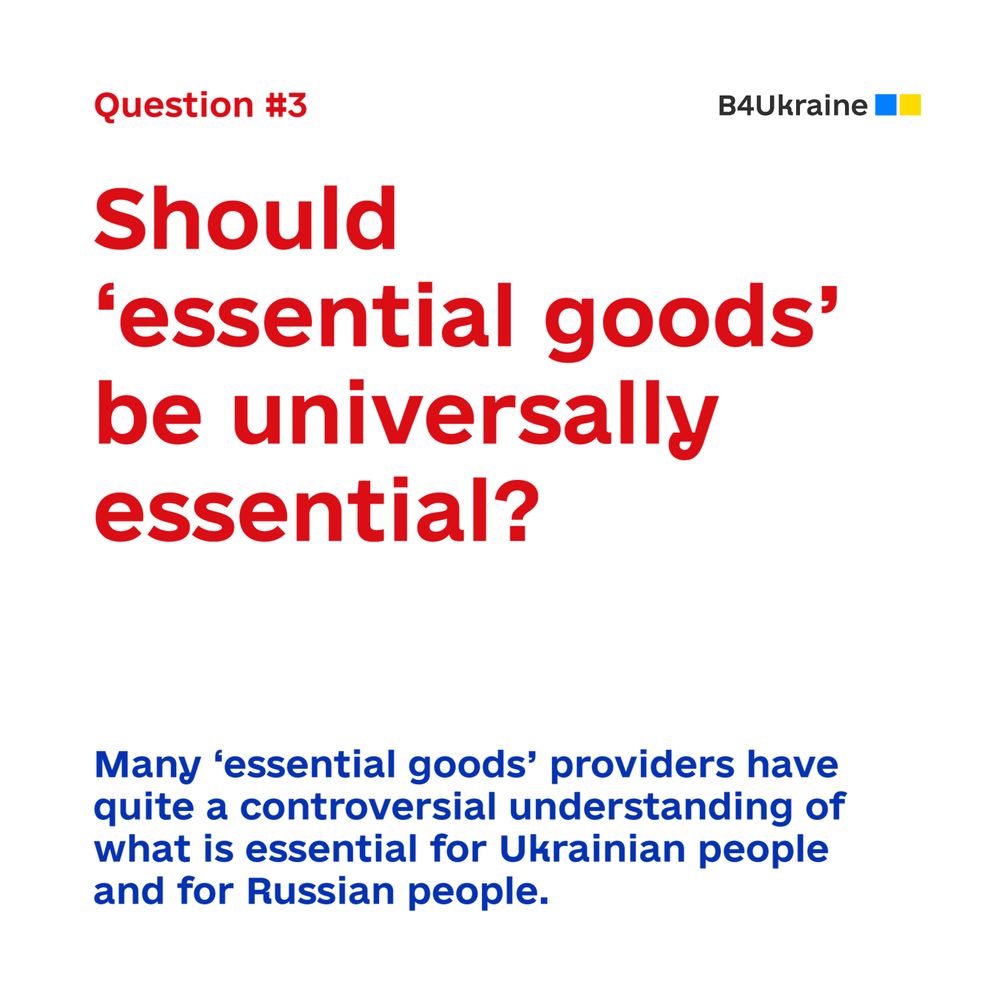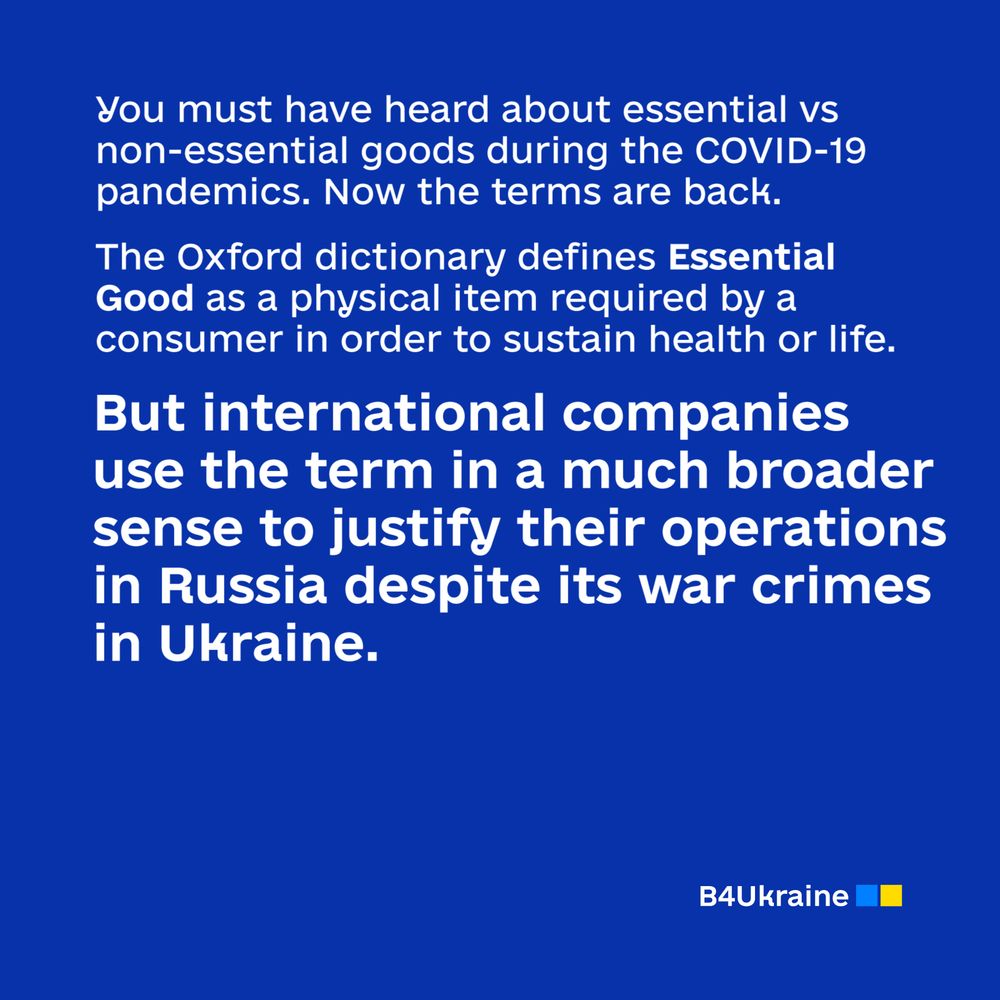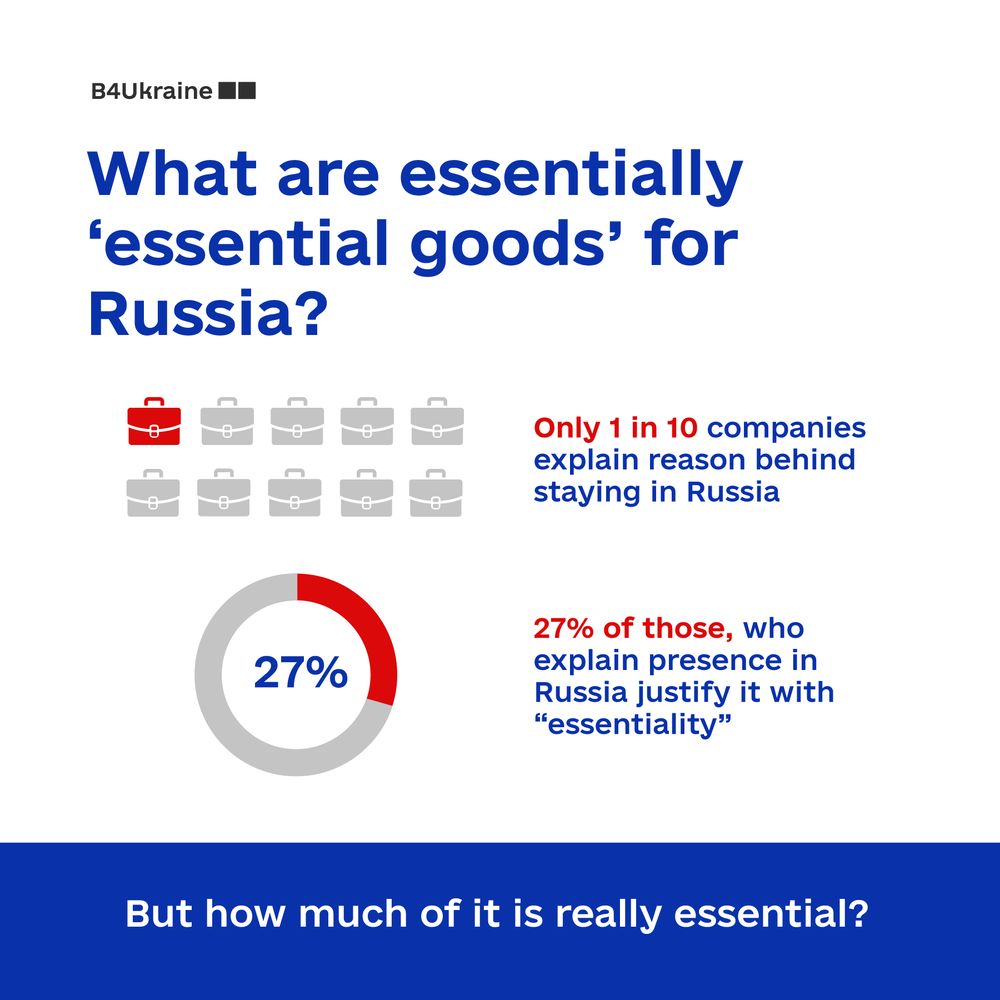
Understanding the difference between essential and non-essential is critical in any crisis - be it global pandemics or a war. Recently, consumers and employers worldwide had to make decisions on the essentiality of goods during global pandemics. Manufacturers and governments at all levels dealing with adapting to the new realities and effects of COVID-19 had to ensure the flowing of the supplies of goods to consumers for whom they are, indeed, essential. The Oxford dictionary defines Essential Good as a physical item required by a consumer in order to sustain health or life. With the unprovoked Russian aggression against Ukraine, the use of the essential goods terminology by many international companies may have supported the Russian customers of these brands but has led to more losses in health and life among the people of Ukraine.
“We are committed to ensuring that our essential medical products will reach the people who need them within the region,” American healthcare company Johnson & Johnson explained its decision to stay in Russia in early March 2022, becoming one of the first international companies to use the essentiality of the supplied goods as an excuse to keep operating in the aggressor country despite all Russia’s war crimes in Ukraine. Unfortunately, it is not an exception but a rule for those still doing business in Russia.
According to the recent B4Ukraine research, the provision of essential/critical/basic goods – either basic food or hygiene products or essential medicine and clinical trials – to the Russian people is one of the most popular excuses among the multinationals remaining in Russia. It was used by 27% of the companies publicly communicating about their presence in Russia. This justification is widely employed by multinationals operating in pharma and healthcare (Bayer, Pfizer, Sanofi), FMCG (Nestlé, Procter & Gamble, Auchan), food & beverages industry (Cargill, Barilla Group). And they play this card very well. The healthcare and pharma industry still, almost seven months into Russia’s full-scale war on Ukraine, has the highest share of companies that continue business on a full or limited scale in Russia (90% as of September 11, 2022, to be exact). The rest of the essentiality excuse fans are also not very far behind, with 68% of companies in the food & beverages industry and 61% in FMCG still operating in the country.
While helping the international companies to continue business in Russia without any significant criticism, the excuses of providing the Russians with essential goods, however, have not been challenged against the lists of what was considered essential during the pandemic. So, here are three questions to ask the companies that use such an excuse.
Question #1. What is the company’s definition of ‘essential goods’?
More than three months into the war and dozens of companies referring to the essentiality of their supplies, the corporate definition of ‘essential goods’ is still as vague as it was initially used in March 2022. Neither Nestlé, Mondelez - International, nor any other company, large or small, has clarified the meaning of ‘essential goods’ and what exactly goods they keep supplying to consumers in Russia.
“As a food company, we are scaling back all non-essential activities in Russia while helping maintain continuity of the food supply during the challenging times ahead,” Mondelez-International said. No wonder the company doesn’t want to be more specific: none of its products can be considered essential. The company is the Russian market leader in chocolate, sweets, and biscuits and is also ranked second in the chewing gum and lollipops categories.
“As the war rages in Ukraine, our activities in Russia will focus on providing essential food, such as infant food and medical/hospital nutrition,” said Nestlé, noting that it has “halted non-essential imports and exports into and out of Russia.” According to the company’s public statements, Nestlé doesn’t consider KitKat chocolate bars and Nesquik chocolate flavor cereal essential. But what does it consider essential then? The company didn’t go into details either.
The company’s reluctance to be more explicit might be explained by the fact that it has six factories in six different Russian regions. Its factory in the Krasnodar region has been producing Nescafe instant coffee, the one in the Kaluga region – (surprise!) – baby food, the one in the Perm region – Nesquik and other cereals. One can hardly argue that chewing gum or coffee are essential goods.
This vague wording is entirely intentional as it allows one to hide the truth, refrain from decisive actions to exit the Russian market, and simultaneously avoid criticism. The only condition under which such statements should be taken seriously is when they are accompanied by the disclosure of the complete list of brands and products that the companies keep supplying to Russia and the scale of such operations.
Question #2. Are ‘essential goods’ actually essential if they can be replaced with local substitutes?
By claiming some goods to be essential, the multinationals ignore the high possibility that Russia can be capable of supplying itself with these goods. The Russians themselves keep assuring the entire world of that. The infamous “Zamestim” campaign is all about: it stresses the Russians’ willingness to replace imported goods with locally produced ones. But in some cases, ignoring this possibility is nothing more than a well-calculated move on the part of international companies.
Take, for example, American household goods maker Procter & Gamble. Before the war, in the Russian retail market, the company was represented by 70 brands, including Gillette, Always, Discreet, Pampers, Fairy, Ariel, Head & Shoulders, Oral-B, and others. In response to the full-scale Russian invasion of Ukraine, in March 2022, P&G ended all advertising activities and new capital investments in Russia and reduced its portfolio “to focus on basic health, hygiene and personal care items needed by the many Russian families who depend on them in their daily lives.”
Meanwhile, the company keeps operating its plant in Nomoskovsk, Tula region. By a total coincidence, among other things, the plant produces feminine hygiene sanitary pads Discreet that are, of course, considered to be ‘essential goods.’ And by coincidence, P&G chooses to “forget” that there are other – Russian – producers on the market that can supply Russian women with sanitary pads, such as Firma Gigiyena with production in Ekaterinburg and Bella Vostok with production in the Moscow region. Or is it not a coincidence but a way to protect a market share?
Suppose the essentiality and irreplaceability of some medicines are debatable (though we can remind ourselves that Russia still managed to make its own COVID-19 vaccine). In that case, the essentiality and irreplaceability of most foods that international companies keep supplying to Russia don’t stand any criticism at all. For instance, this excuse is quite popular among French food producers, including Danone (17 plants in Russia) and Savencia Fromage & Dairy Group (one plant in Russia). The latter explained its decision to remain in Russia with the intention to “continue our activities of milk collection, cheese production, and distribution activities as they are essential to feeding the population.” The #1 product of the company is blue cheese which can hardly be called an essential product for feeding in any country, even France.
The same logic applies to food retailers such as Auchan and Metro and other food producers such as Bonduelle and Hochland. Russia is a large producer and exporter of food. It also has a large domestic retail sector (e.g., Magnit, Lenta, Perekrestok, etc.). So, it’s doubtful that without those companies or foreign supermarkets, the Russian population would be deprived of basic food supplies.
Question #3. Should ‘essential goods’ be universally essential?
Many ‘essential goods’ providers have a controversial understanding of what is essential for Ukrainian and Russian people. For example, companies providing pharmaceuticals or medical goods refer to ethics stating that they would continue supplying patients in Russia with essential drugs. Meanwhile, thousands of people in Ukraine are left without medical help, and the Russian army brutally disrupted their access to vital medicines. Russian invaders have deliberately blocked humanitarian convoys and destroyed medical facilities in Ukraine; there were cases when they did not allow pregnant women to go to maternity hospitals.
Is it ethical to pay taxes related to the ‘essential good’ sales in Russia and the salaries of the plants’ employees, enabling the Russian economy to prolong its aggression and abuse of human rights abroad?
All in all, it looks like justifying a stay in Russia by “provision of essential goods” is a poor excuse for international companies. It certainly could not make a good case in the court of public opinion. According to the latest most extensive democracy study in the world, more people favor cutting ties with Russia than not. What is even worse, the companies claiming the essentiality are, in fact, simply protecting their market share. Those who do so should exit immediately rather than continue to whitewash Russian war crimes with their presence.
